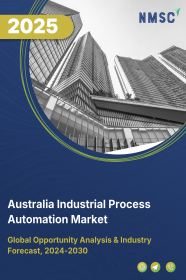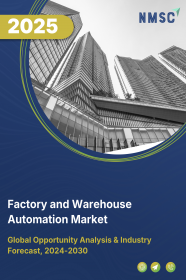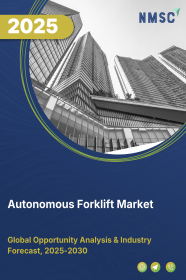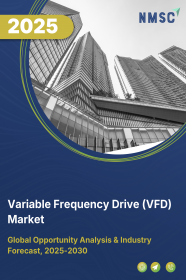
Australia Industrial Process Automation Market by Component (Manufacturing Execution System (MES), Distributed Control System (DCS), Programmable Logic Control (PLC), Supervisory Control & Data Acquisition (SCADA), Field Instruments, Industrial Robots, Human Machine Interface, Industrial PCS, Process Analyzers and Drives), and by End-User (Oil & Gas, Chemical & Refining, Energy & Power, Pulp & Paper, Metals & Mining, Pharma, and Others) – Opportunity Analysis and Industry Forecast, 2024–2030
Industry: Semiconductor & Electronics | Publish Date: 23-Jun-2025 | No of Pages: 159 | No. of Tables: 121 | No. of Figures: 66 | Format: PDF | Report Code : SE997
Australia Industrial Process Automation Market Overview
The Australia Industrial Process Automation Market size was valued at USD 379.7 million in 2023, and is predicted to reach USD 648.6 million by 2030, at a CAGR of 7.4% from 2024 to 2030. The industrial process automation sector represents the industry that delivers technologies and systems aimed at monitoring, controlling, and optimizing industrial operations.
It involves integrating advanced computer technology, hardware, and software to automate critical processes such as inventory management, manufacturing, production, and quality control. Key technologies driving automation in this market include sensors, programmable logic controllers (PLCs), human-machine interfaces (HMIs), and supervisory control and data acquisition (SCADA) systems.
This market supports industries such as oil and gas, chemical processing, food and beverage, and pharmaceuticals, where automation is essential for enhancing efficiency, improving product quality, and ensuring workplace safety.
By reducing operational costs and minimizing human errors, industrial process automation helps companies streamline production processes, delivering higher output with greater precision. As businesses aim to improve productivity and remain competitive in an increasingly automated global manufacturing landscape, the demand for industrial IoT solutions continue to rise.
Mining Industry Remains A Core Driver Of Industrial Process Automation In Australia
Australia's mining sector continues to be a cornerstone of the national economy, contributing significantly to GDP and export revenues through commodities such as iron ore, coal, gold, lithium, and bauxite. The industry's transition toward greater efficiency, safety, and environmental stewardship has accelerated the adoption of industrial process automation. Technologies such as Distributed Control Systems (DCS), Supervisory Control and Data Acquisition (SCADA), Programmable Logic Controllers (PLCs), and Human-Machine Interfaces (HMIs) are increasingly integrated into mining operations.
Automation in mining is instrumental in real-time monitoring of equipment, predictive maintenance, and optimizing extraction and processing workflows. These improvements reduce downtime, mitigate risks to personnel, and increase output. As mines become deeper and more complex, automation is also critical in enabling remote operations and digital twin capabilities. The increasing deployment of these systems across both new and existing mining projects strongly propels the growth of the industrial process automation market in Australia.
Research, Government Initiatives, And Industry 4.0 Uptake Accelerate Automation Adoption
Australia is witnessing a broad-based push toward digital transformation underpinned by research collaborations, public-private initiatives, and Industry 4.0 frameworks. Research centers, universities, and government-backed programs are promoting innovation in manufacturing and industrial automation through pilot projects, grants, and workforce development.
For instance, platforms like futuremap—developed in collaboration with the Innovative Manufacturing CRC and managed by industry stakeholders—are helping small and medium enterprises (SMEs) evaluate their digital readiness and transition toward smart manufacturing. These tools facilitate the integration of automation technologies such as robotics, industrial IoT sensors, and AI-enabled control systems.
Moreover, initiatives like the Advanced Manufacturing Growth Centre (AMGC) and CSIRO's SME Connect have provided targeted support for automation adoption, especially in sectors like food processing, defense manufacturing, and clean energy technologies. These collective efforts enable wider market participation in automation, expanding demand beyond mining and resources into mid-tier and niche industries.
Skills Shortage And Workforce Readiness Impede Automation Adoption
A major restraint facing the industrial process automation market in Australia is the shortage of skilled professionals capable of designing, implementing, and maintaining advanced automation systems. As automation technologies become more sophisticated—integrating AI, machine learning, industrial IoT, and advanced robotics—the demand for specialized knowledge in system integration, data analytics, and cybersecurity grows.
However, there is a widening gap between the skills required by industry and the capabilities of the available workforce. Many small and medium-sized enterprises, especially outside major metropolitan areas, face difficulties in attracting and retaining talent with expertise in automation and digital transformation. This lack of workforce readiness not only slows the pace of adoption but also increases operational risks and implementation costs, thereby hindering overall market growth.
Growing Emphasis On Sustainability And Decarbonization Drives Automation Investment
Australia’s industrial sectors are increasingly focusing on sustainability, energy efficiency, and emissions reduction, creating new opportunities for process automation technologies. Automation systems play a pivotal role in helping companies meet environmental regulations, reduce resource wastage, and achieve carbon neutrality targets.
By deploying smart sensors, real-time monitoring tools, and AI-driven analytics, industries can optimize energy use, detect inefficiencies, and manage emissions more effectively. The integration of automation with renewable energy systems, water management solutions, and circular manufacturing processes is becoming a key priority across sectors including mining, manufacturing, and agriculture.
As both regulatory pressure and stakeholder expectations around ESG (Environmental, Social, and Governance) rise, companies are increasingly investing in automation not only for productivity but also for compliance and sustainability outcomes—unlocking significant growth potential in the market.
Competitive Landscape
Several players operating in the Australia industrial process automation industry include Siemens AG, Mitsubishi Electric Corporation, Schneider Electric SE, Honeywell International Inc, ABB Ltd., Toshiba Corporation, Emerson Electric Co., Rockwell Automation Inc., Omron Corporation, Valmet OYJ , Yokogawa Electric Corporation, Endress+Hauser, Dwyer Instruments Inc., Fuji Electric Co., Ltd. , FESTO, and others.
Australia Industrial Process Automation Market Key Segments
By Component
-
Manufacturing Execution Systems
-
Hardware
-
Software
-
Services
-
-
Distributed Control Systems
-
Hardware
-
Software
-
Services
-
-
Programmable Logic Control
-
Hardware
-
Software
-
Services
-
-
Supervisory Control and Data Acquisition (SCADA)
-
Hardware
-
Software
-
Services
-
-
Field Instruments
-
Industrial Robots
-
Human Machine Interface
-
Industrial PCS
-
Process Analyzers & Drives
By End-User
-
Oil & Gas
-
Chemical & Refining
-
Energy & Power
-
Pulp & Paper
-
Metals & Mining
-
Pharmaceutical
-
Cement & Glass
-
Others
Key Players
-
Siemens AG
-
Mitsubishi Electric Corporation
-
Schneider Electric SE
-
Honeywell International Inc
-
ABB Ltd.
-
Toshiba Corporation
-
Emerson Electric Co.
-
Rockwell Automation Inc.
-
Omron Corporation
-
Valmet OYJ
-
Yokogawa Electric Corporation
-
Endress+Hauser
-
Dwyer Instruments Inc.
-
Fuji Electric Co., Ltd.
-
FESTO
REPORT SCOPE AND SEGMENTATION:
|
Parameters |
Details |
|
Market Size in 2023 |
USD 379.7 Million |
|
Revenue Forecast in 2030 |
USD 648.6 Million |
|
Growth Rate |
CAGR of 7.4% from 2024 to 2030 |
|
Analysis Period |
2023–2030 |
|
Base Year Considered |
2023 |
|
Forecast Period |
2024–2030 |
|
Market Size Estimation |
Million (USD) |
|
Growth Factors |
|
|
Companies Profiled |
15 |
|
Market Share |
Available for 10 companies |
|
Customization Scope |
Free customization (equivalent up to 80 working hours of analysts) after purchase. Addition or alteration to country, regional, and segment scope. |
|
Pricing and Purchase Options |
Avail customized purchase options to meet your exact research needs. |

















 Speak to Our Analyst
Speak to Our Analyst



















